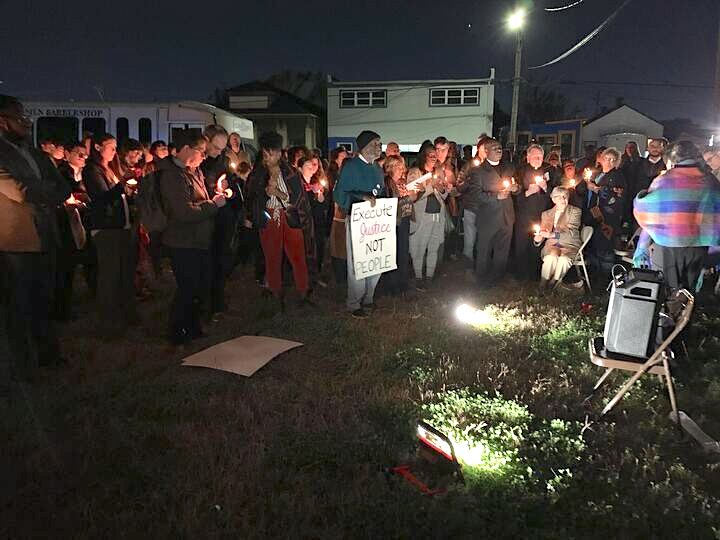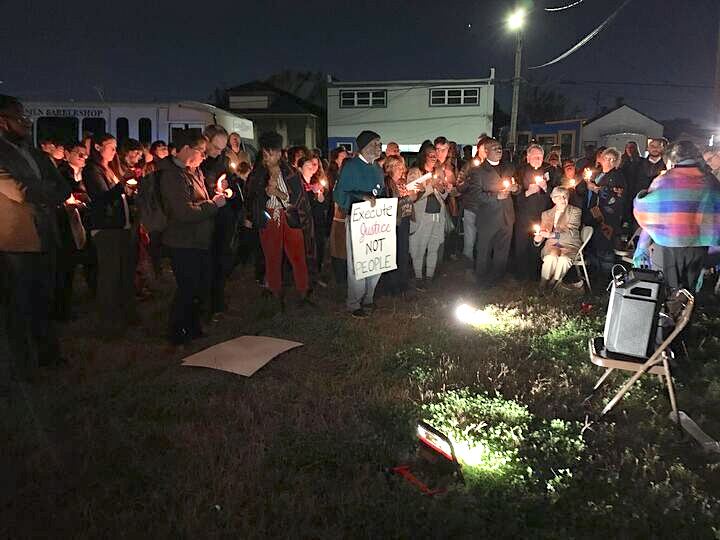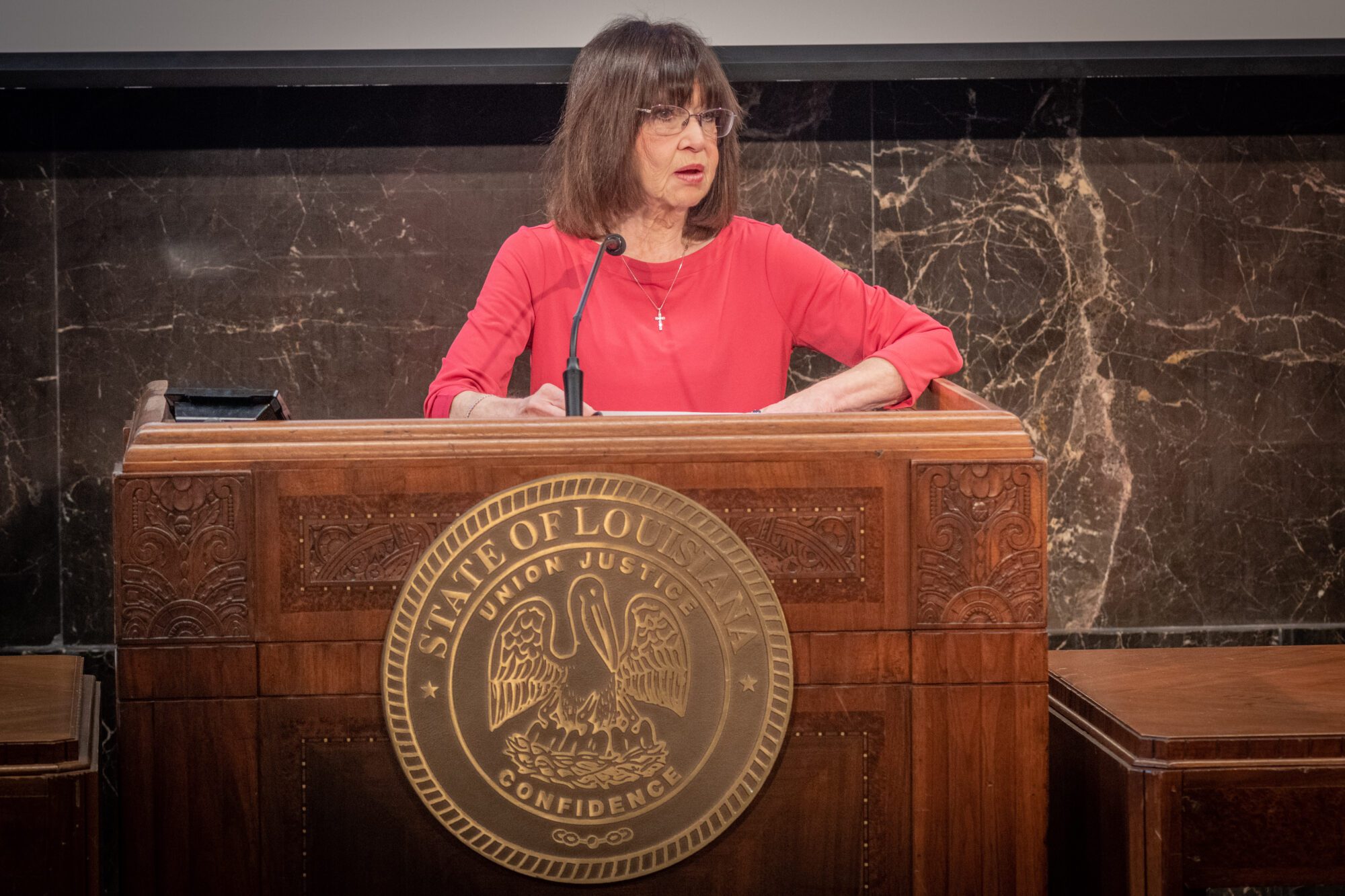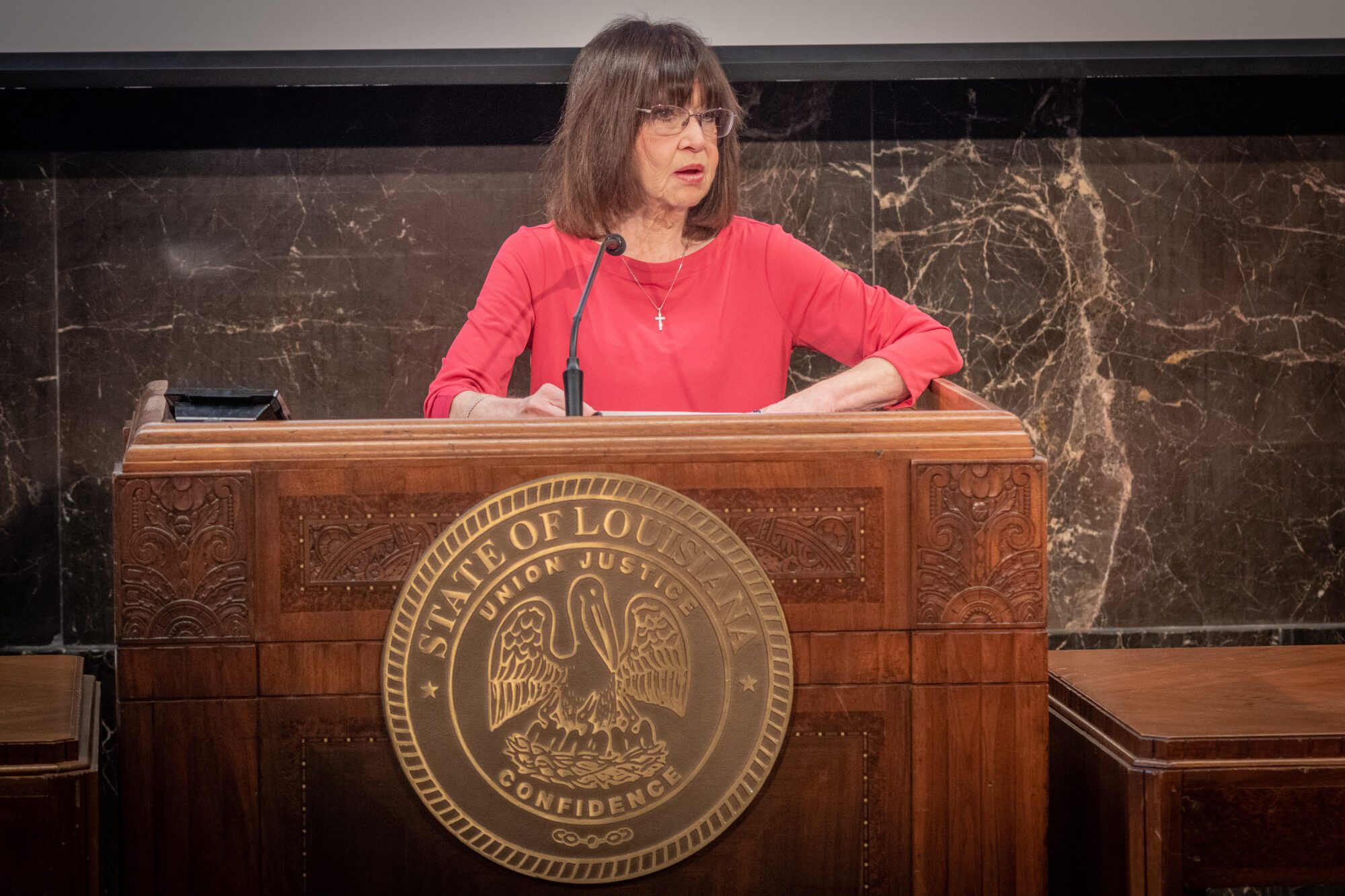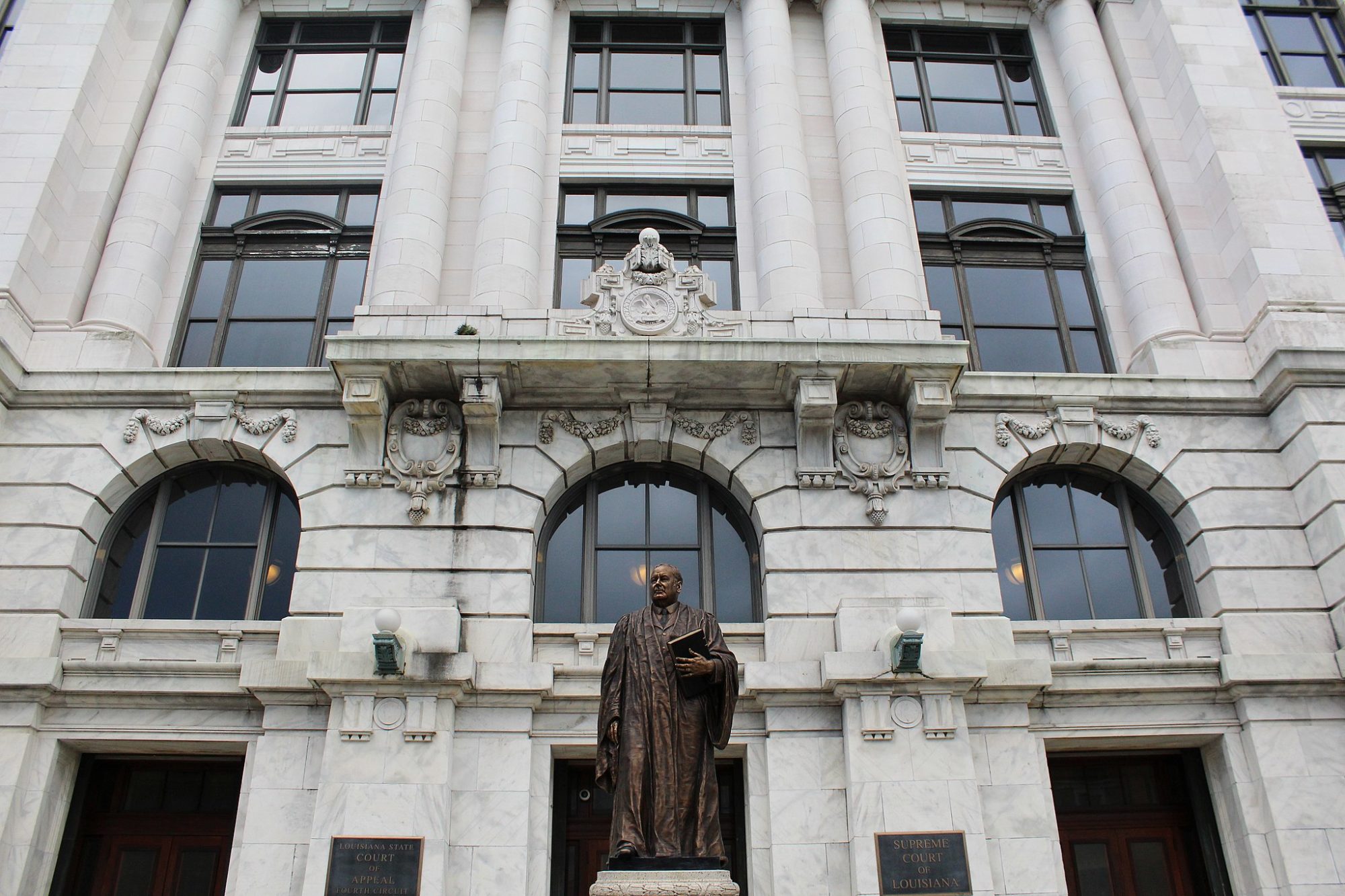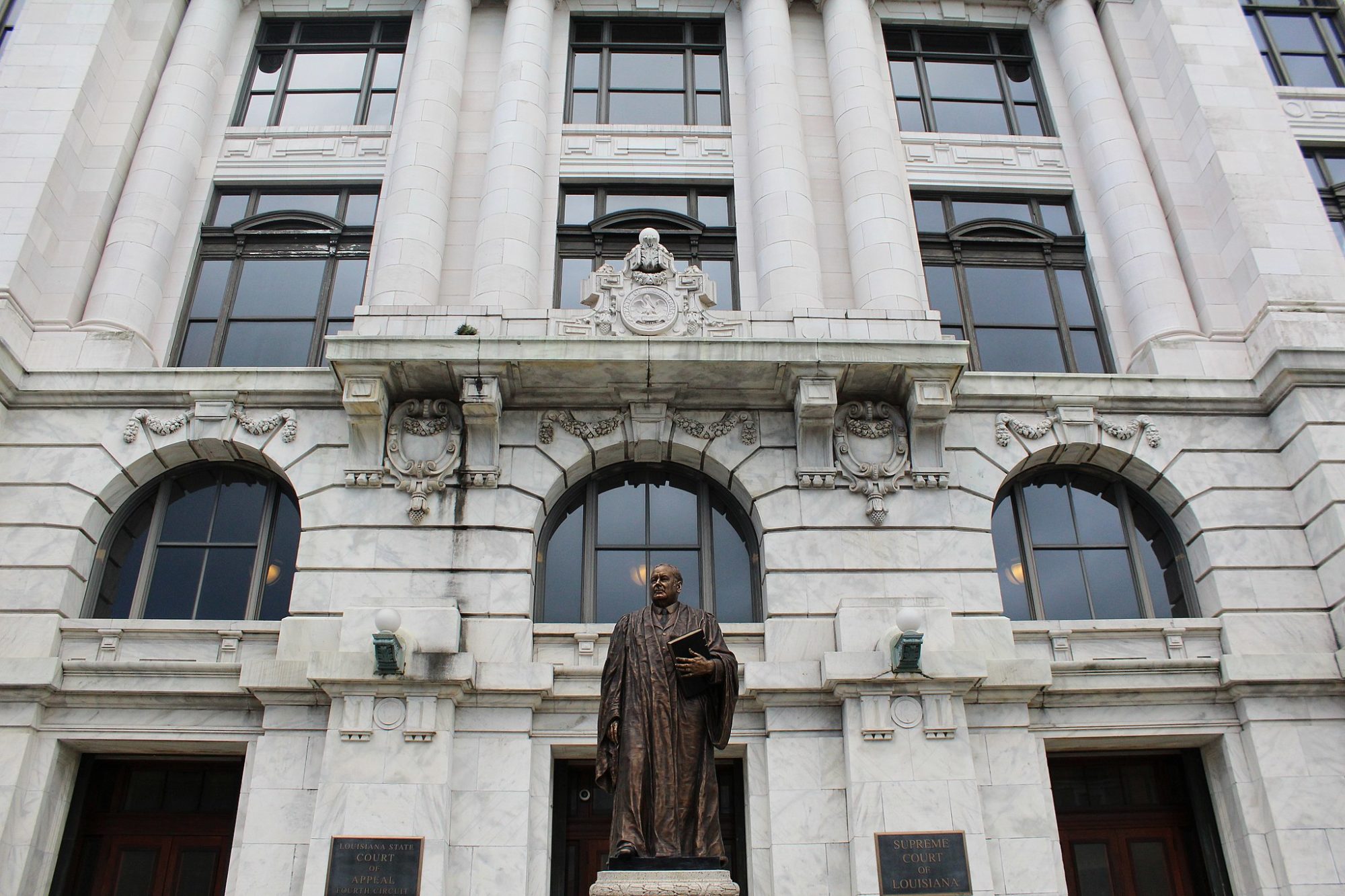Louisiana Organizers Brace for Landry
Facing a hard-right turn on criminal justice with the arrival of a new governor, advocates for criminal justice reform vow to redouble their efforts.
Piper French | January 10, 2024
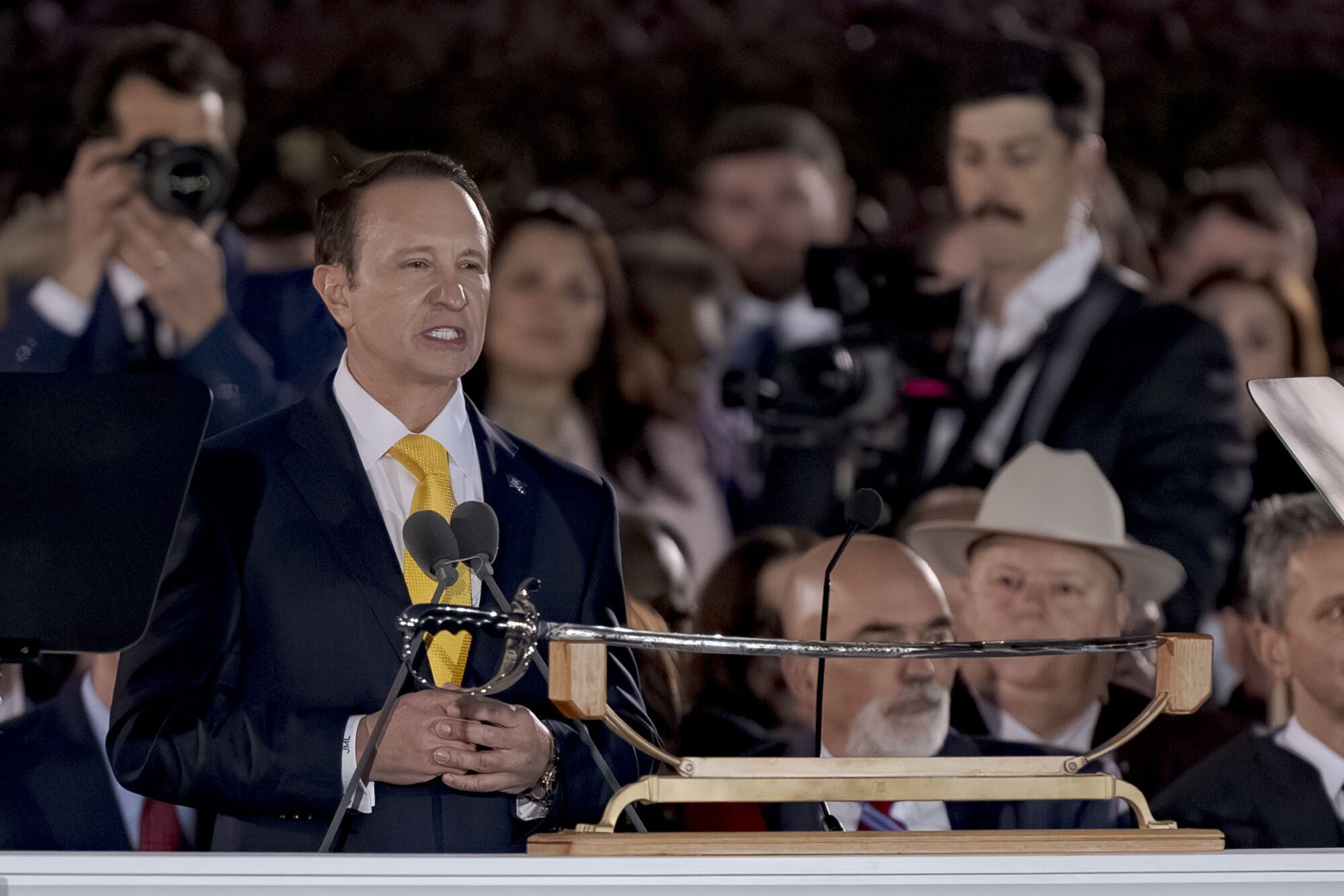

It surprised everybody, above all the 57 people sitting on Louisiana’s death row: In March of 2023, with less than 10 months left as governor, John Bel Edwards had just revealed his profound opposition to capital punishment. Lawyers working on the cases sprang into motion. In June, they filed a flurry of petitions for clemency, asking the governor to commute 56 of those sentences to life without parole. In a state where only two capital sentences have been commuted in the past half-century, it seemed like a door had been cracked ever so narrowly open.
And then, just as quickly, it slammed shut: Louisiana’s attorney general and the leading candidate in the race for governor, Jeff Landry, filed a lawsuit against the Board of Pardons and Parole, seeking to disqualify the petitions; he then fired the lawyer the Board hired to represent it in the suit, and instead installed an attorney who has represented him in the past. What followed over the next few months, as Edwards’s days in office dwindled to zero, has amounted to an agonizing bureaucratic back-and-forth: the Board, following Landry’s suit, has repeatedly declined to grant the prisoners full clemency hearings, instead scheduling brief administrative reviews for fewer than half of them.
One of the prisoners, Henri Broadway, has maintained his innocence in the 1993 murder of police officer Betty Smothers. During his review, his defense team was cut off early, while the opposition received 10 extra minutes to speak. “It’s very, very discouraging,” Broadway’s lawyer, Sarah Ottinger, told Bolts. “Henri Broadway is innocent.”
“It was headed towards fair and full consideration of these cases,” said Cecelia Kappel, whose organization, the Capital Appeals Project, coordinated the petitions. “It took, I think, a huge effort by Jeff Landry and the DAs association to stop this.” Ultimately, not a single person was granted clemency—or even a full hearing.
In November, after a dismal voter turnout, Landry won the election. His inauguration as governor earlier this week marked a stark transition for the state.
For the people who fight to change Louisiana’s penal system—historically brutal, harsh, and deadly even compared to the rest of the US—the past eight years under Edwards were a time of cautious optimism. A rare Democratic leader in the Deep South, he worked to pass landmark, bipartisan criminal justice reform legislation in 2017, expanded Medicaid to prisoners, vetoed harsh criminal justice laws passed by the Republican-dominated legislature, and ramped up commutations, especially over the last year. With Edwards as a “backstop,” Promise of Justice Initiative organizer Katie Hunter-Lowrey told Bolts, “it felt for a while that Louisiana had been protected from some of the more extreme actions being taken across the country.”
Landry, meanwhile, has signaled that he will be a very different sort of leader—a return to Louisiana’s harsh status quo on criminal justice, but with a heightened level of bombast. A Trump ally and product of the Tea Party, he embodies the new Republican party’s commitment to the culture war and antipathy toward compromise. He has repeatedly targeted the state’s majority Black cities, supported harsher criminal laws, and indicated his intention to roll back Edwards’ landmark reforms. Empowered with a GOP supermajority in both houses of the legislature, Landry is likely to be able to carry out his agenda without much resistance. “Louisiana will continue to stay at the top of the prison incarceration list, and we will not be any safer or any more prosperous for it,” said Sarah Omojola, the director of Vera Institute of Justice’s New Orleans office.
But advocates are refusing despair, opting instead to view this as a signal to redouble their organizing efforts, especially to communities that aren’t already mobilized but might recoil from the hard-line policies that Landry is poised to enact. “These [low voter] turnouts were a wake up call,” said Reverend Alexis Anderson, the co-founder of the East Baton Rouge Parish Prison Reform Coalition, which works to shed light on the local jail death crisis.
Anderson told Bolts she views this moment as an opportunity—nowhere to go but up. “If we don’t, and we basically go hide in a corner somewhere, then we’re ceding something that doesn’t make any sense,” she said. “We are always one election away from changing things.”
A moderate operating amidst a sea of red, outgoing governor Edwards at times moved too carefully for some onlookers, a frustration recently on display after his refusal to use his power to unilaterally direct the Board of Pardons to hold full hearings for the death row petitioners. But his reforms have made a difference: Louisiana may still be the “prison capital of the world,” with the highest per capita rate of incarceration on the entire planet, but its incarcerated population has gone down some 24 percent during Edwards’s time in office.
These improvements are largely owing to the Justice Reinvestment Initiative, a landmark package of 10 criminal justice bills that Edwards and the legislature worked to pass in 2017. In the six years since its passage, the reforms have reduced the number of people convicted of nonviolent crimes in prison, funded victims’ support and reentry services that reduce recidivism, and shrunk the parole and probation population. But advocates now worry this progress could be undone under the new governor. Last year, Landry supported the creation of a task force on violent crime designed to review the effects of the reform package, as well as another 2016 law that moved 17 year olds back into the juvenile justice system. He has already announced a special legislative session on crime, where it is widely assumed he will support repealing the laws that made up the justice initiative. The special session could convene as soon as February.
Anderson said she’s especially troubled by the thought that Landry might roll back Louisiana’s scant juvenile justice reforms. (Last year, he vigorously supported a bill that would have made teenagers’ criminal records public, but only for teenagers who lived in three of the state’s majority-Black parishes, including East Baton Rouge.) “Primarily African American boys are going to be put into harm’s way in the worst kind of way,” Anderson said. “You just can’t unring that bell, the harm that’s going to be done.”
Meanwhile, Landry has already assembled a special committee on New Orleans, an unusual move. It’s an indication that he might seek to use his new office to preempt local control and try to ramp up law enforcement presence in the city, both things he also did as Attorney General.
In response to Landry’s proposals, Omojola told Bolts that Vera will be going back to the coalition that succeeded in winning those landmark 2017 reforms in the first place— “reconvening that dream team of people to figure out, how do we both protect the progress we’ve made and also continue to move forward?” she said. “Those reforms were just a first step. Much, much more needs to be done.”
While Louisiana’s GOP trifecta and a Republican supermajority in the legislature will make it difficult for organizers to stop new bills from becoming law, they hope that they can get people into the streets and continue to organize on the local level as well. “The race to the bottom isn’t just at the governor’s mansion. It’s in the legislature but it’s also in some of these localized policymakers,” said Anderson, highlighting the need for advocates in Louisiana’s cities to organize with rural populations as well.
Omojola stressed the importance of national organizations like Vera partnering with local membership groups like Louisiana Survivors for Reform, which Hunter-Lowrey coordinates. The coalition’s work organizing with people who might not already be inclined towards criminal justice transformation could be a useful strategic template. This year, for example, they’ve worked with family members of victims in two of the death row cases. “So often, this tough-on-crime legislation is passed in the name of victims and survivors. But for the past few years, [the Louisiana Survivors for Reform coalition] has showed that there are survivors who are saying, ‘Actually, that’s not for me,’” Hunter-Lowrey told Bolts. “The work that we’re doing to provide a non-judgmental space for survivors and victims’ families where advocacy is explicitly part of our healing—it has made a difference.”
“It’s going to continue to take some time, but I think that path that we’re laying brick by brick is still the right one,” she added.
Hunter-Lowrey’s colleague at Promise of Justice Initiative, Michael Cahoon, has been organizing with faith leaders across the state for several years, most recently around the campaign to ask for mercy for those on death row. “We activated a lot of folks who hadn’t been active,” he said. “We’re definitely hoping to continue that sense of urgency and that sense of moral imperative in the next year.”
“As we move forward into a new political reality,” Cahoon went on, “It’s also about presenting an affirmative vision for what safety looks like, beyond our over-reliance on mass incarceration. “And I think that’s going to be the work of the next year, four years, eight years, 10 years.”
For Anderson, it all comes down to voter mobilization. “There are things that any governor can do that can be problematic,” she told Bolts. “When the voters simply do not show up, do not flood the legislature, do not call, there’s no accountability.” She pointed to the raft of elections coming up this year. In 2024, Louisiana will select a new state supreme court justice and nine intermediate appellate court judges, send six representatives to the U.S. House, and choose a public services commissioner. The state’s three biggest parishes will hold school board elections. Even party elections can make a difference: Norris Henderson, a formerly incarcerated organizer, is running for Democratic State Central Committee.
The Louisiana Parole Project has a practice of posting to social media each time a client’s sentence is commuted. Most of the photos depict older Black men, smiling broadly, with Angola’s gates blurred in the background. This year, the images have proliferated: despite his reluctance to move on the death row clemency petitions, Edwards did commute the sentences of at least 123 prisoners, the vast majority of them lifers. Though that’s just a small percentage of those serving life sentences in the state, it’s still the highest number of commutations of any governor since the 1980s. “For a lot of those families, the only way they would have seen their loved one was in a box when they sent him home,” Anderson said.
But if Landry is anything like his Republican predecessor, relief will be scarce in the coming years: Bobby Jindal commuted just three people’s sentences during his entire eight years in office.
Landry’s election has not only dashed hopes of commutation for prisoners on death row or anywhere else—it has also raised the very real possibility that executions will resume in the state. Louisiana last put a man to death in 2010, only after he waived his right to keep fighting his case and asked the state to end his life; there have been no contested executions in the state since 2002. But Landry has long defended capital punishment. In 2018, he criticized Edwards for not doing more to resume executions and argued that the state should consider older methods of execution, like hanging and firing squads.
Cecelia Kappel, the capital defense lawyer, is worried that the new governor might try to do what he can to jumpstart executions. But she’s also motivated by how the clemency battle exposed deep flaws in the way Louisiana doles out death sentences and by how much the public’s support for capital punishment has eroded in recent years. In August, she succeeded in getting one of her clients an entirely new trial. “We’re just going to keep moving forward,” she told Bolts. “And we shall see what the future brings, but I think that we will see more exonerations and we will certainly see more reversals in the next few years.”
Stay up-to-date
Support us
Bolts is a non-profit newsroom that relies on donations, and it takes resources to produce this work. If you appreciate our value, become a monthly donor or make a contribution.



